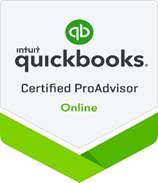Marie’s Musings…
When I get involved in business planning for businesses, ranchers, and farmers one of the questions that I inevitably ask them is “what are you providing for your customers?” How do you describe your products or services from your customers’ perspective? The answer I’m looking for is not THE product or THE service—it’s something deeper—it’s something emotional—it’s the benefit that you provide.

Are You Speaking the Right Language?
For instance, there are a lot of accounting professionals who introduce themselves as accountants and the services that they provide are accounting, or job costing, or tax or audit services (ho-hum…boring). While the accountants respond with a generic answer of their service or product, the customer is looking for a reason to hire or buy from you. Do you make their lives easier, simpler? Can you introduce them to new systems that will help make more money? Can you analyze their business so that they can make wise decisions and keep more of the money that they earn? Do you help companies become more profitable? ARE you talking your customers’ language ….or you own?
Every sales lead is precious. It takes a lot to get people’s attention these days, and once a lead or prospect comes in your door, you’ve accomplished that hurdle, but now you have another one: getting the business. To ensure you can turn those prospects into paying customers as often as possible, here are three mistakes we can all learn from and avoid from the very beginning of the sales process.
Tech-Speak
Every industry has its own vocabulary. For example, pool service companies talk about “shock,” booster pumps, and acid levels. If the salesperson starts slinging too many of these words around, the new pool owner is going to usually freak out. Accountants talk about debits and credits and financial statements…so what…who cares?
Worse, you can end up going down a technical conversational path that derails the sale and has you answering all sorts of educational questions that the prospect doesn’t even need to know about if they hired you. It’s a sort of foxhole you don’t want to go down, at least not during a sales call, and especially not during the very first interaction with a prospect. When I first started creating proposals, I would review data files, briefly trouble-shoot to see what needed to be fixed and describe in detail to the owner to show that I knew what he needed…not anymore. Most owners are simply not interested in technical jargon of what it takes to clean files—or anything else—they just want to use their information to make decisions.
Continuing with our pool example, a pool owner’s goals are usually that they want their pool looking awesome and safe to swim in. Although your business is likely to be far more complex than your prospect realizes, they will be scared away if you overwhelm them and sound like you will be difficult to work with. Instead, focus on their goals and how your services meet their goals.
Lack of Interest
If your staff is tired when they answer the phone or if they simply answer the questions of the prospect and wait for them to ask the next question, then you’re likely to make a ho-hum impression on that prospect. It will feel like your company is not interested in them.
A great salesperson — or even receptionist — will answer a prospect’s questions, and will ask further questions to find out more about the prospect’s situation. Establish a rapport by finding something in common with your prospect. Perhaps you went to the same college, grew up in the same neighborhood, or attended the same church. Find out about their business.
Then find out about the business issue to be solved. What are their goals? Ask them for the big picture so that you understand where they’re coming from before you get into the details. This will make for a great start to the sales process as well as your relationship.
Lack of Preparation
You may have called a vendor in hopes of finding out more about what they have to offer, only to discover they are not ready. This typically happens with new business owners or new staff. If the staff does not know the answers to the most basic of questions, then you could have a problem.
Prepare a list of questions that your staff is likely to get, and write in the answers so they will have this cheat sheet in front of them when they field calls. This will allow your employees to speak more confidently and more accurately with prospects.
Be sure they also know how to best handle the question we all love, “How much do you charge?” Providing a good answer to this question requires extra skills. You might consider putting together a sales script to handle that question or even putting your employees through some basic sales training.
Check to see if you or your staff need to avoid any of these three selling mistakes, and you’ll be on your way to more sales. Let us know how we can help you keep more of what you make!








